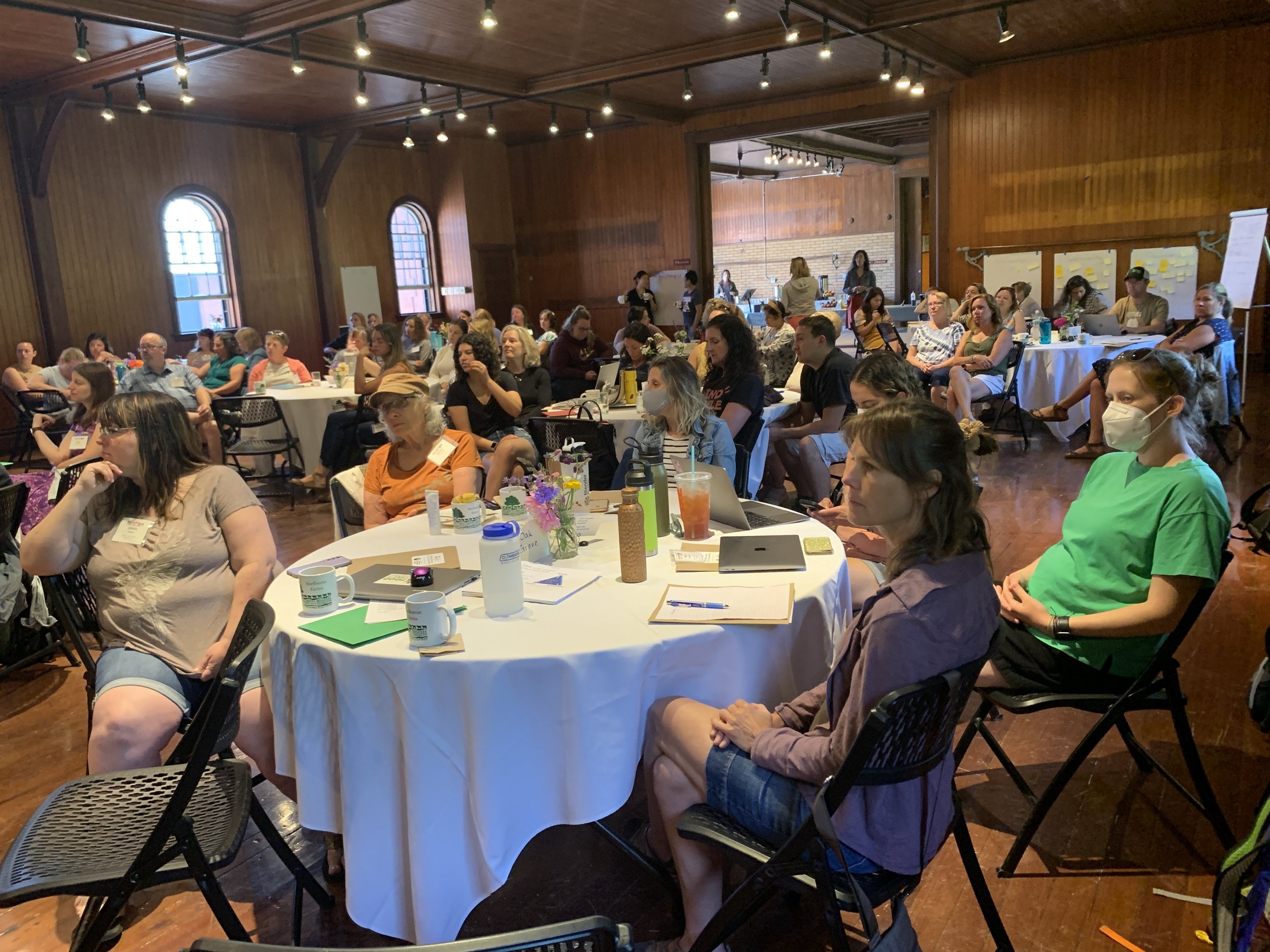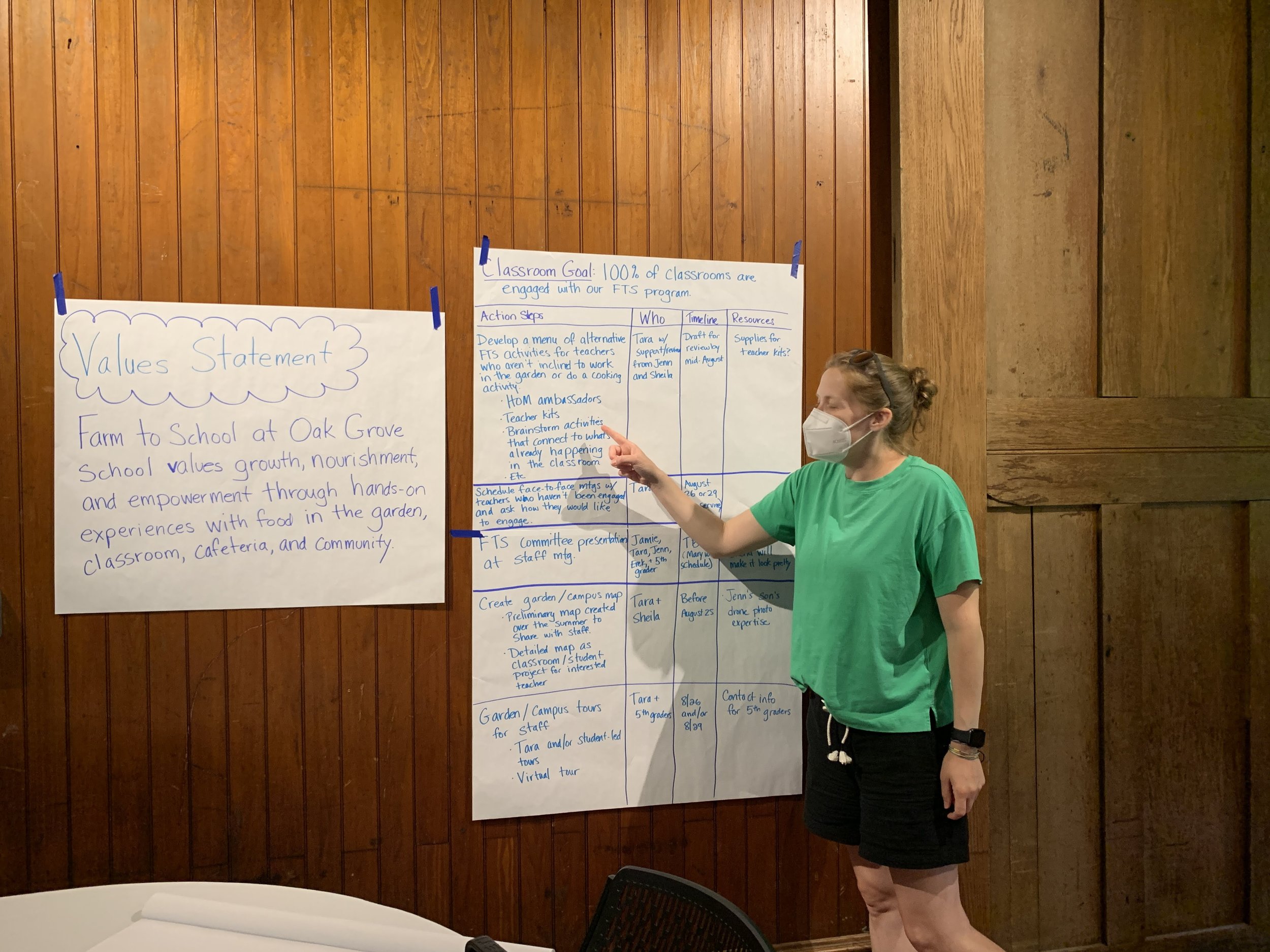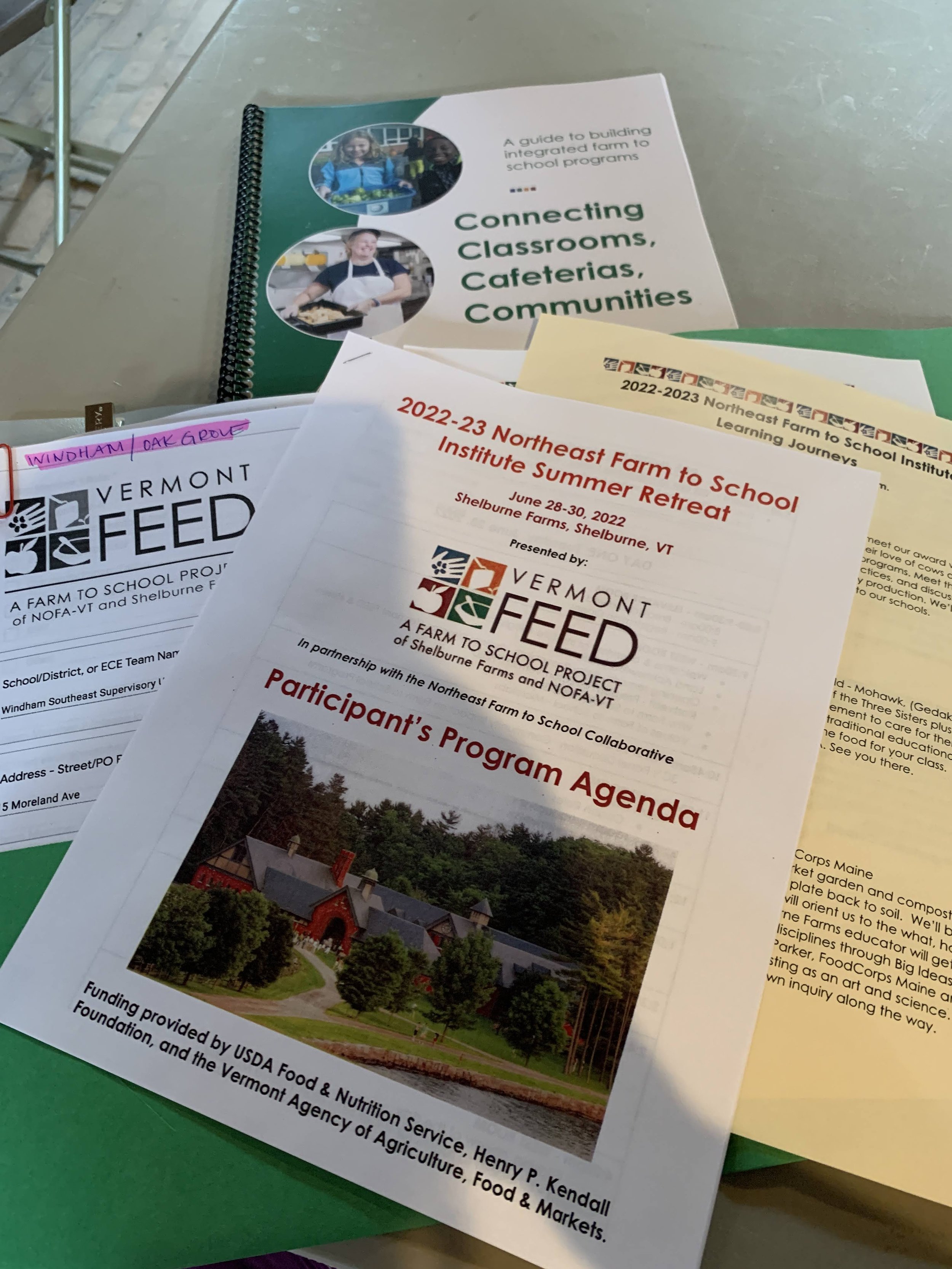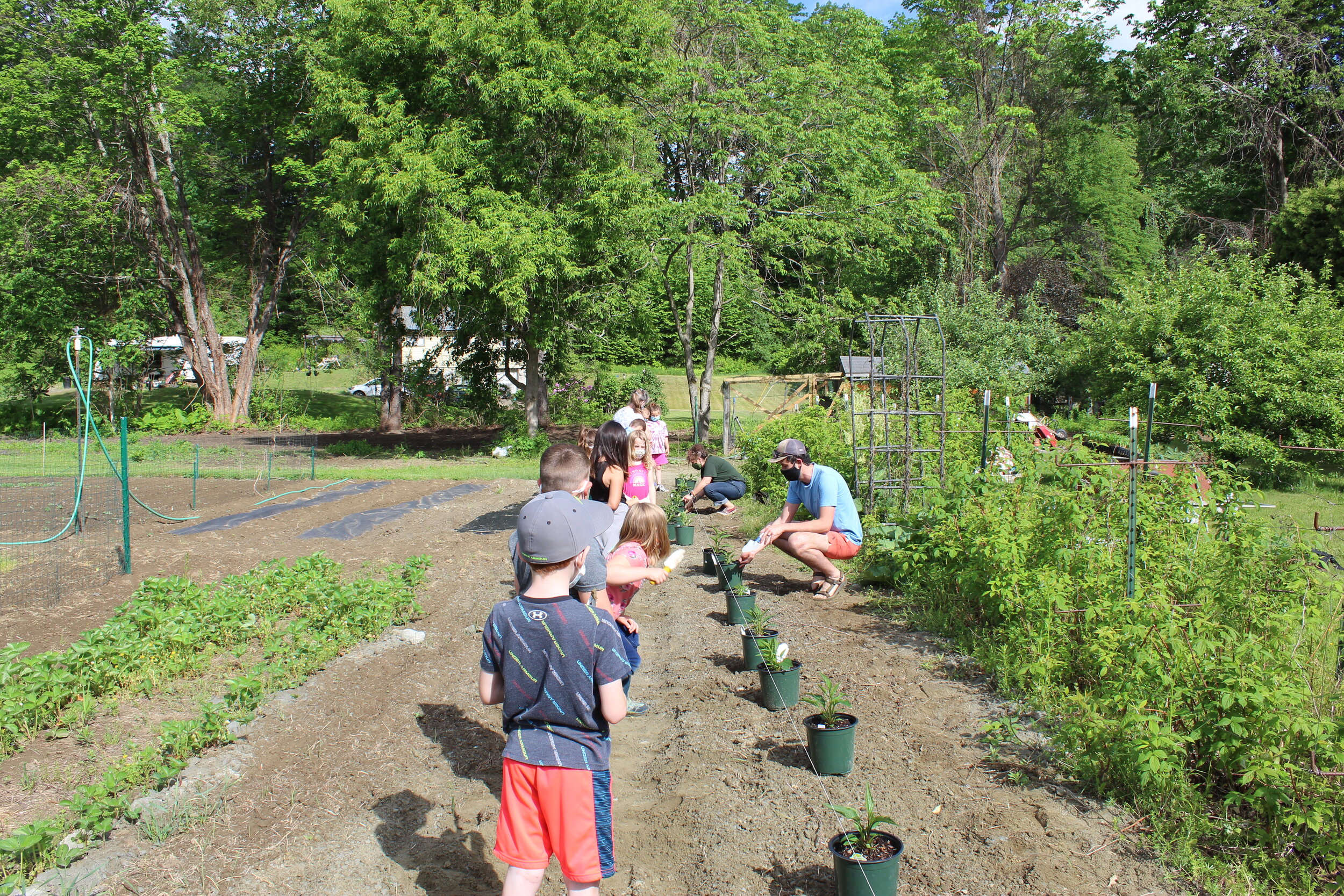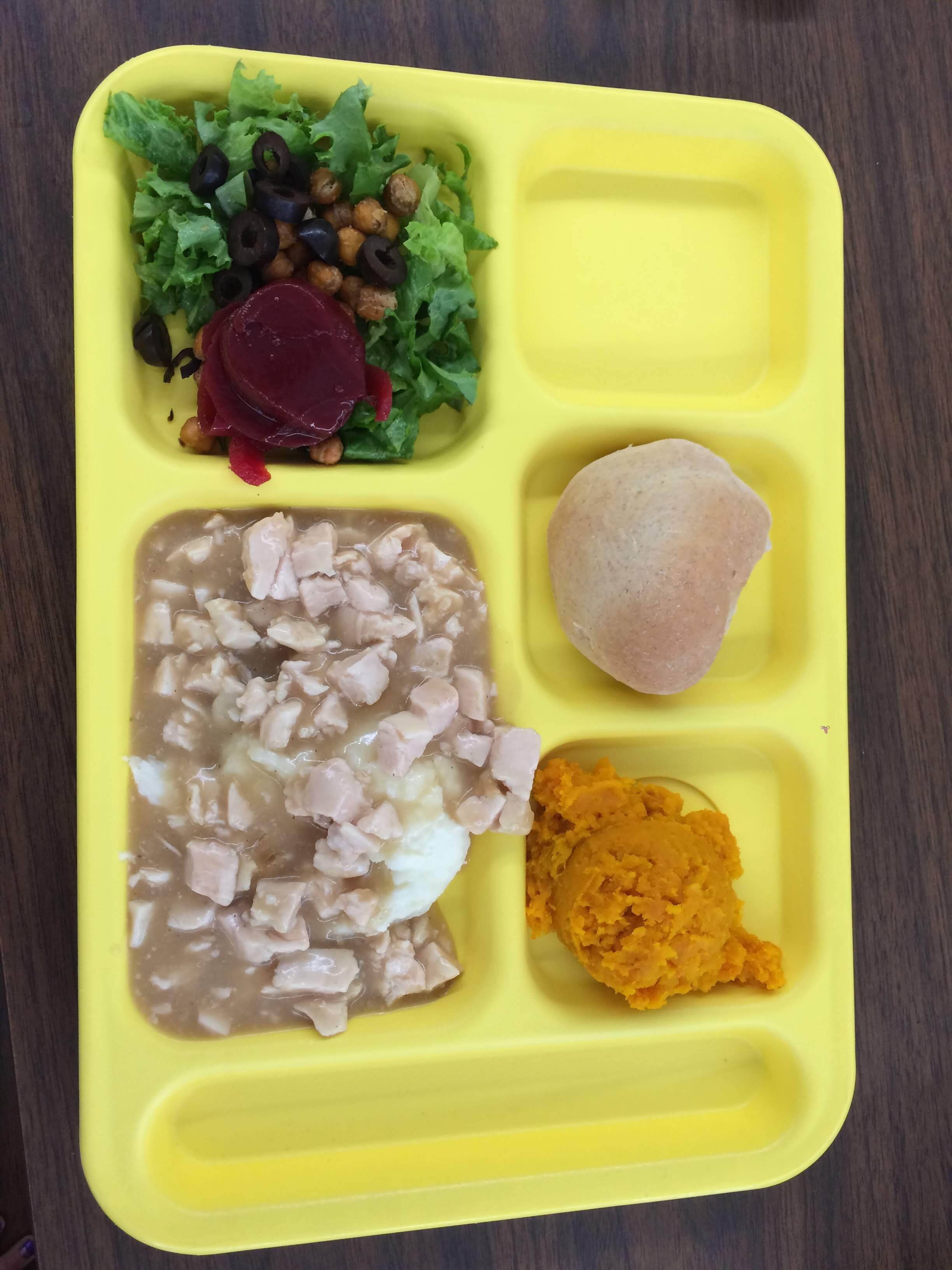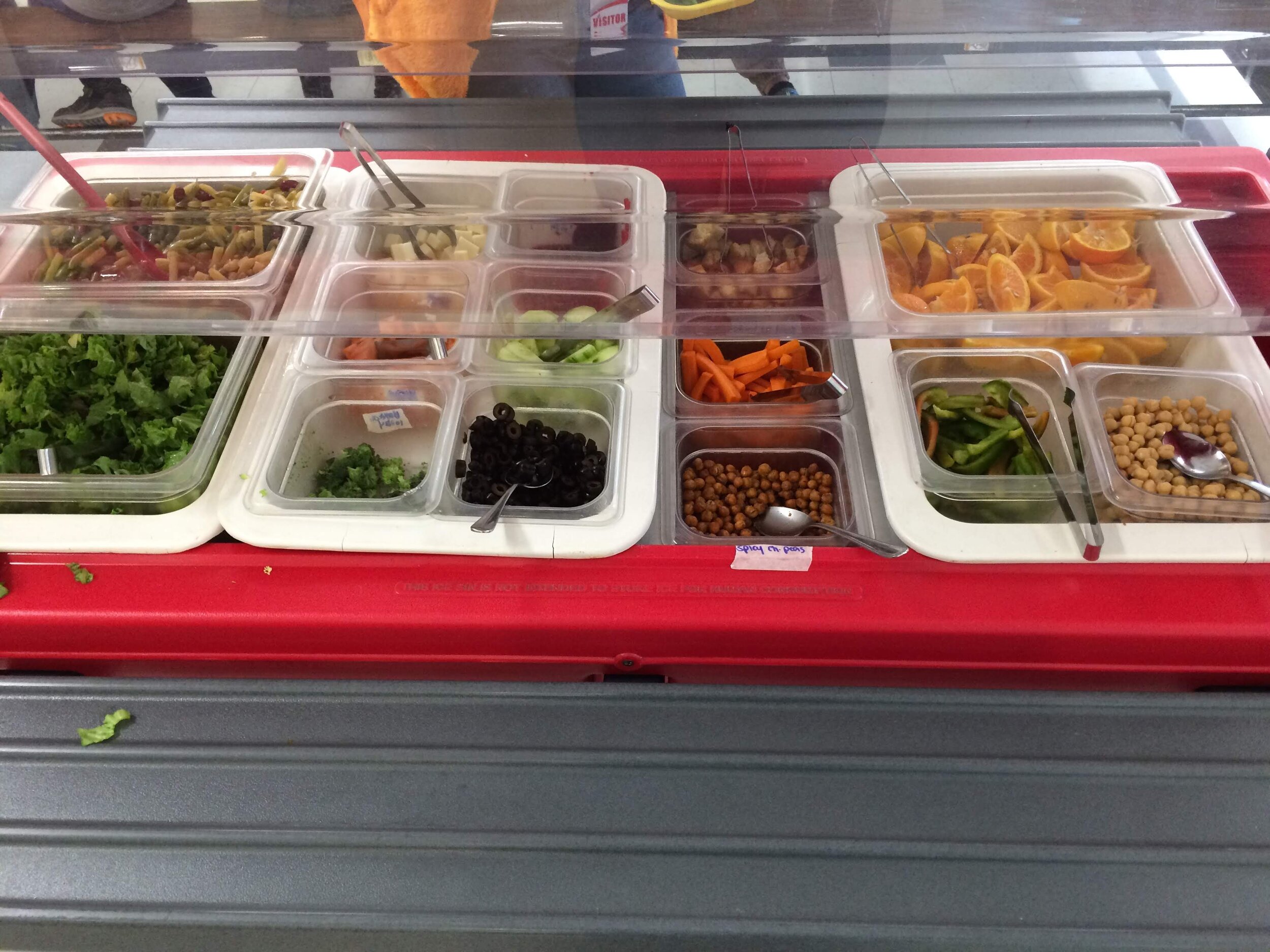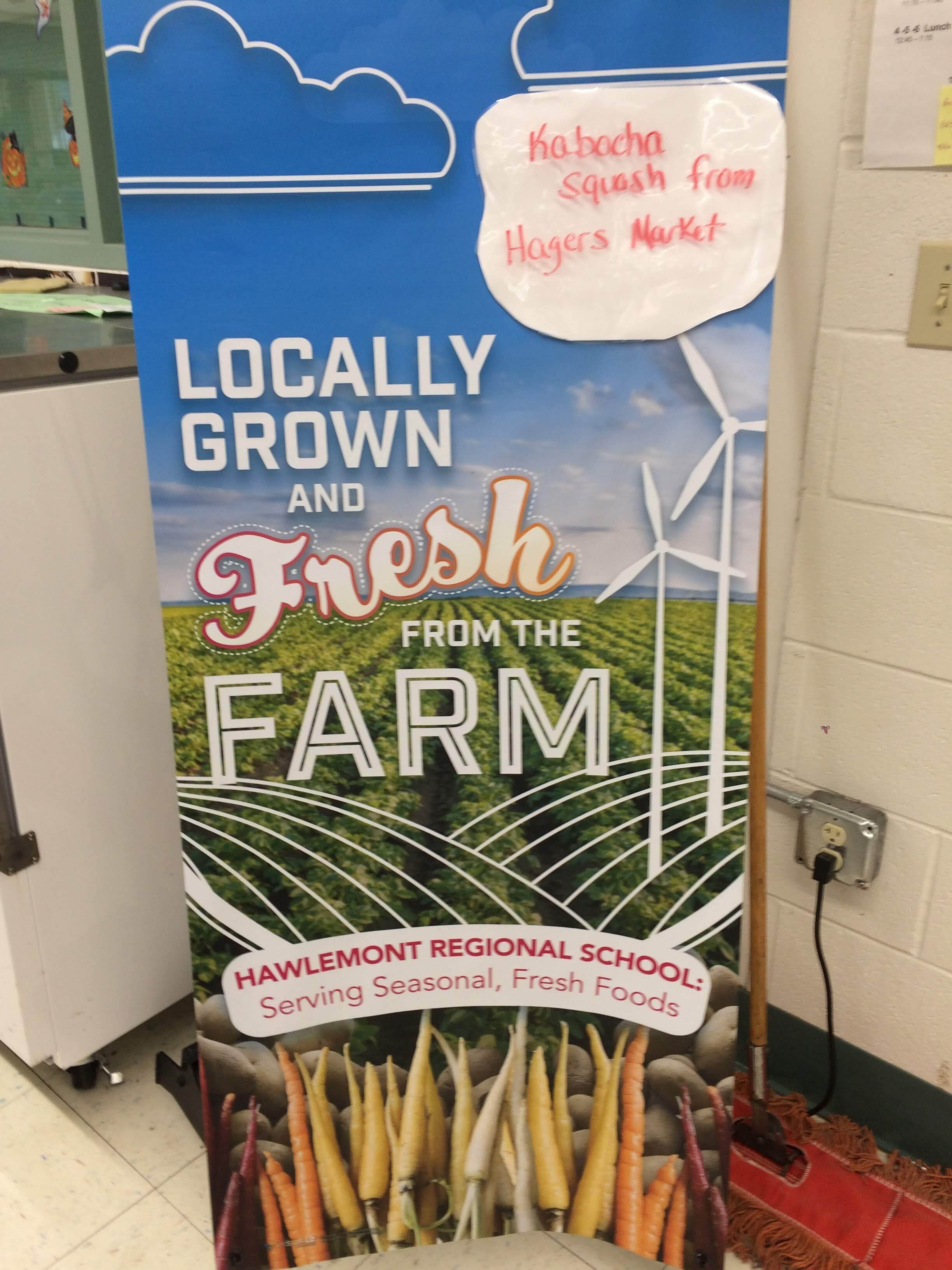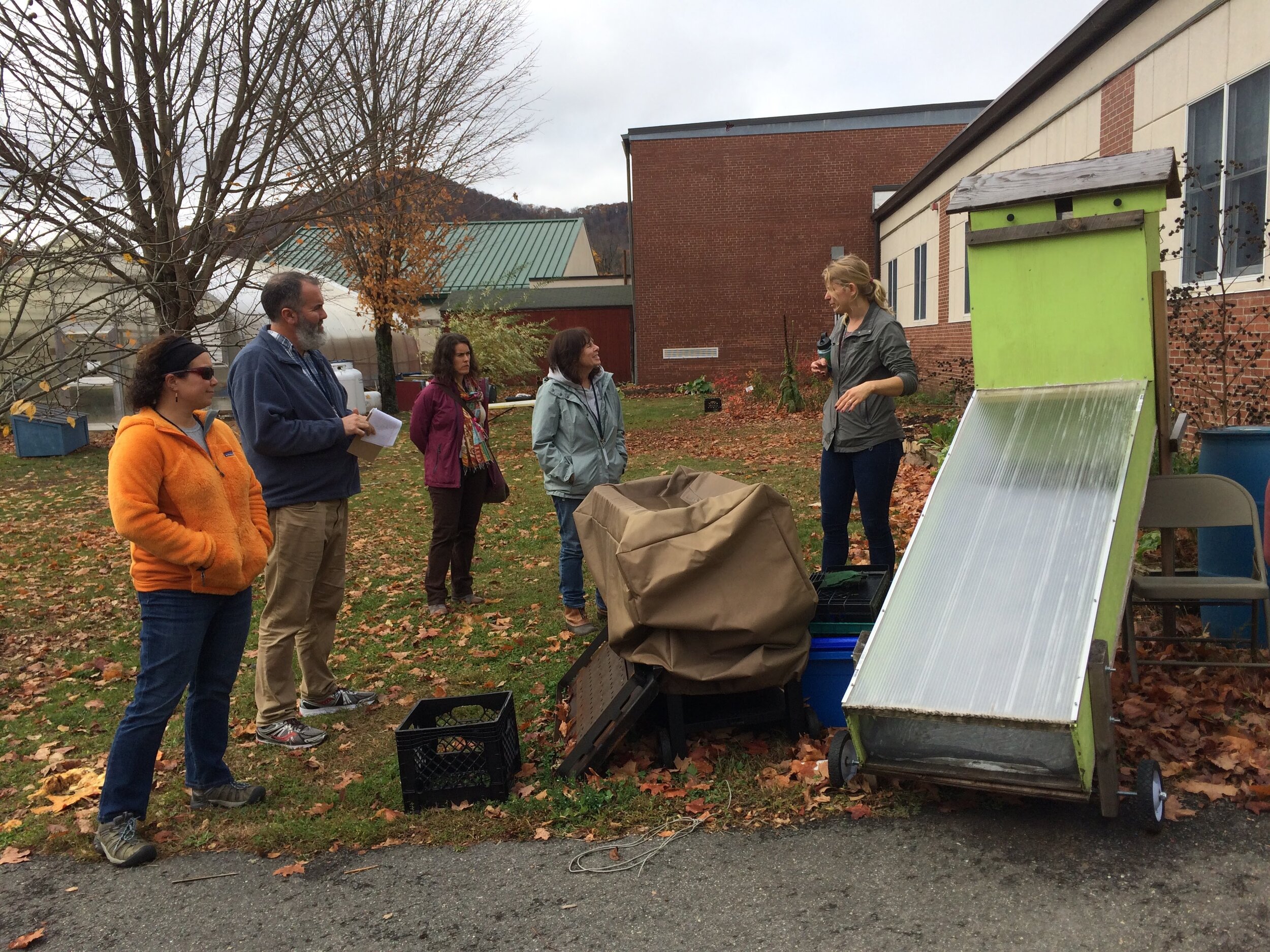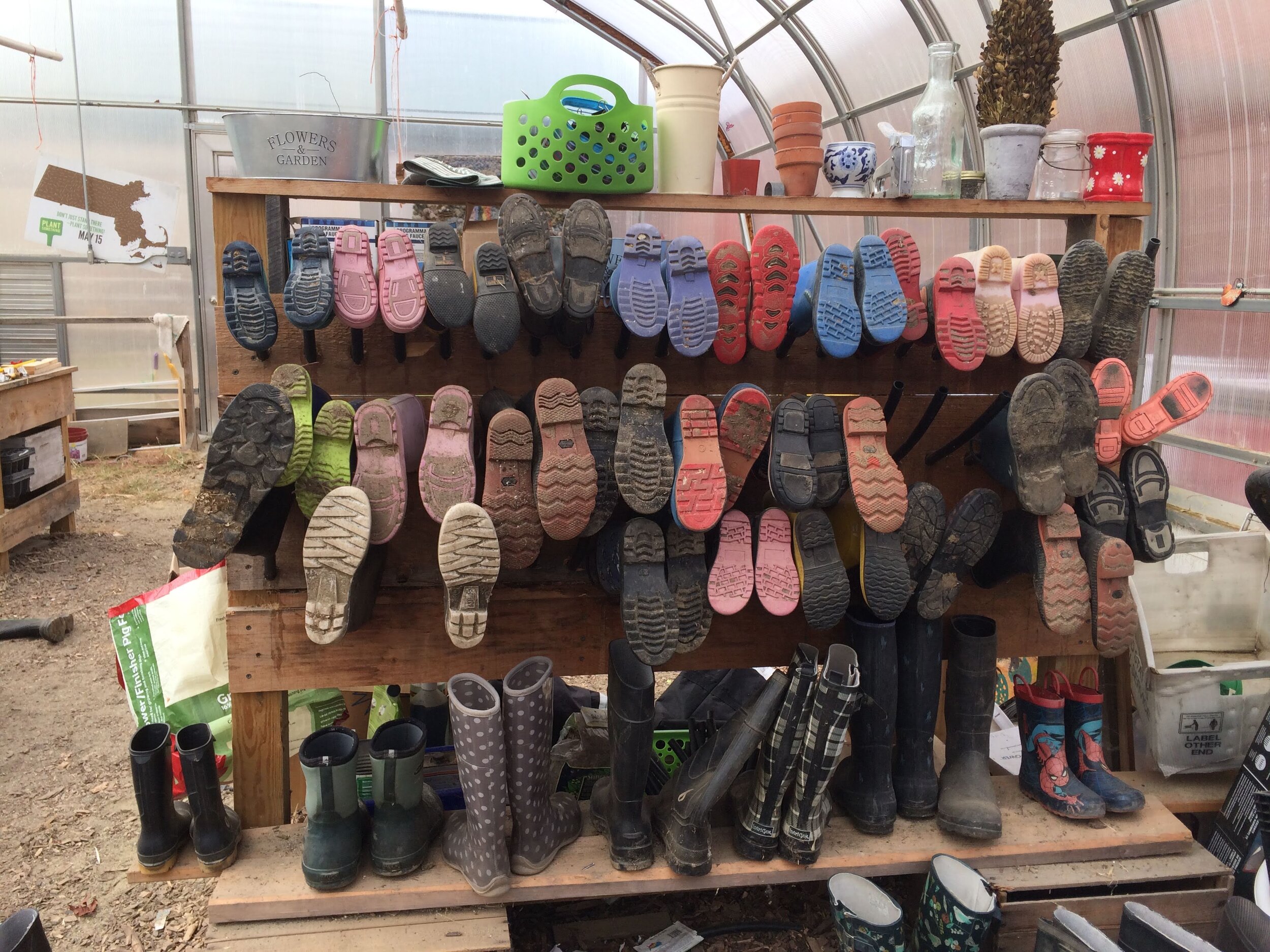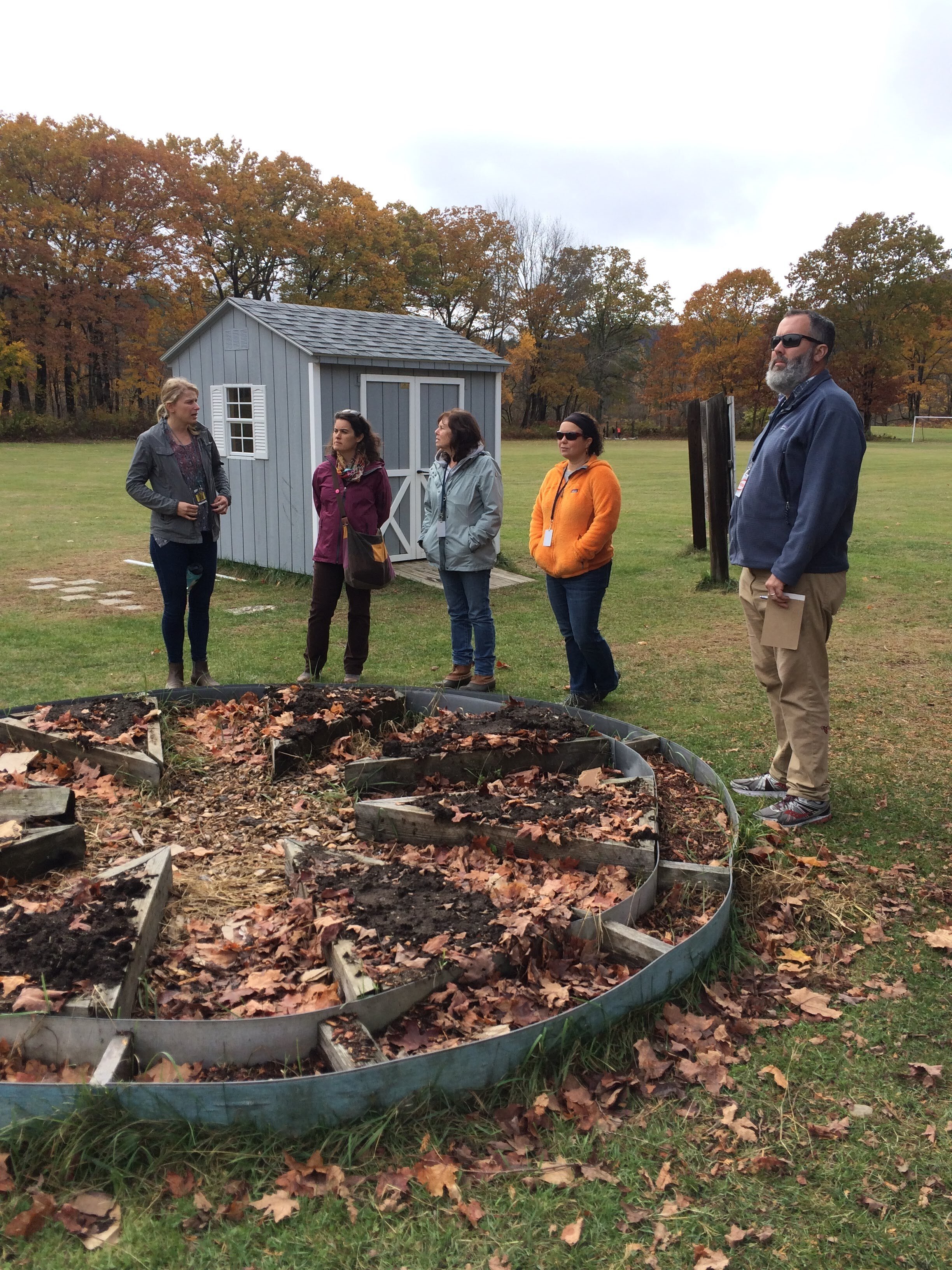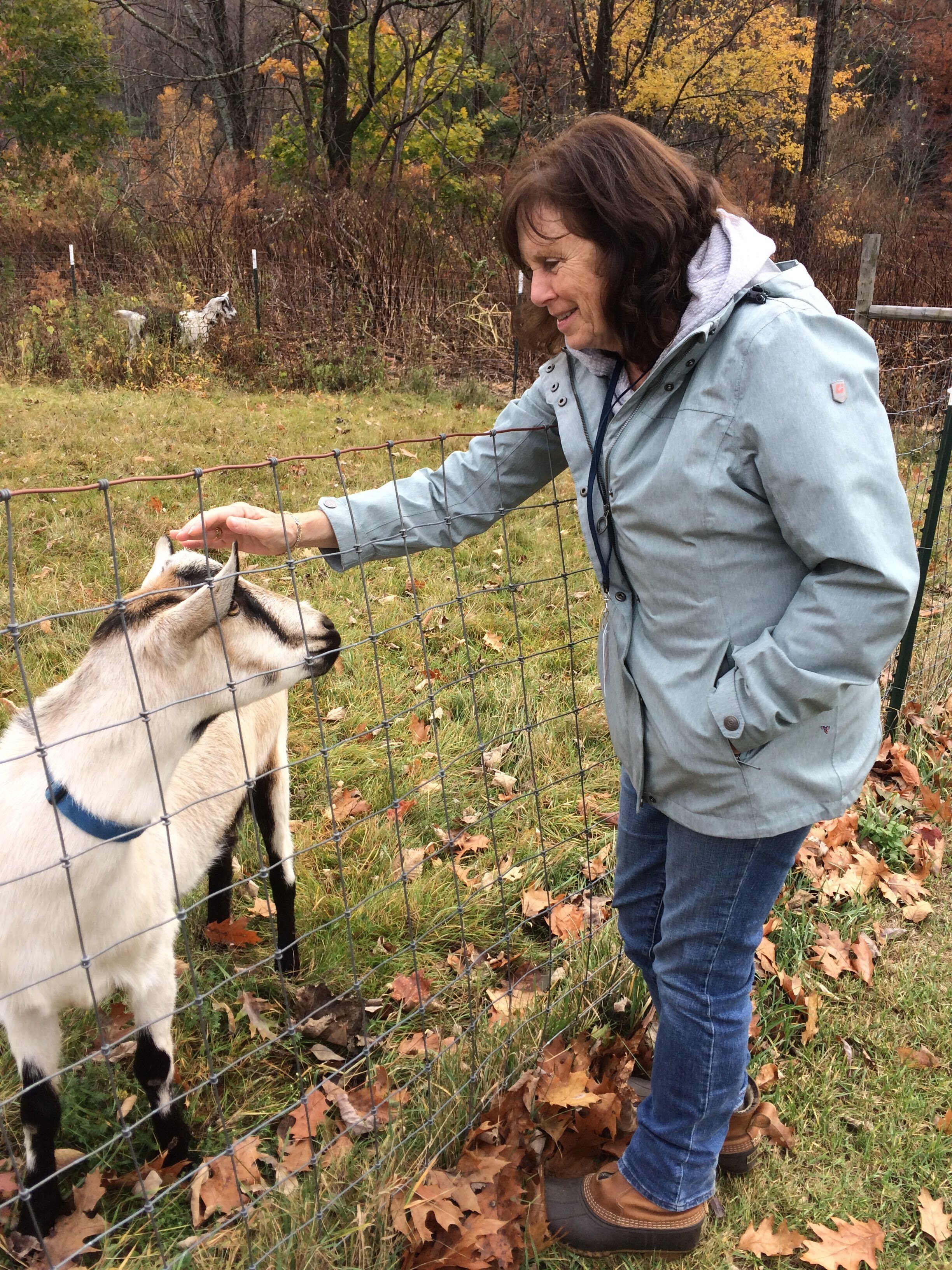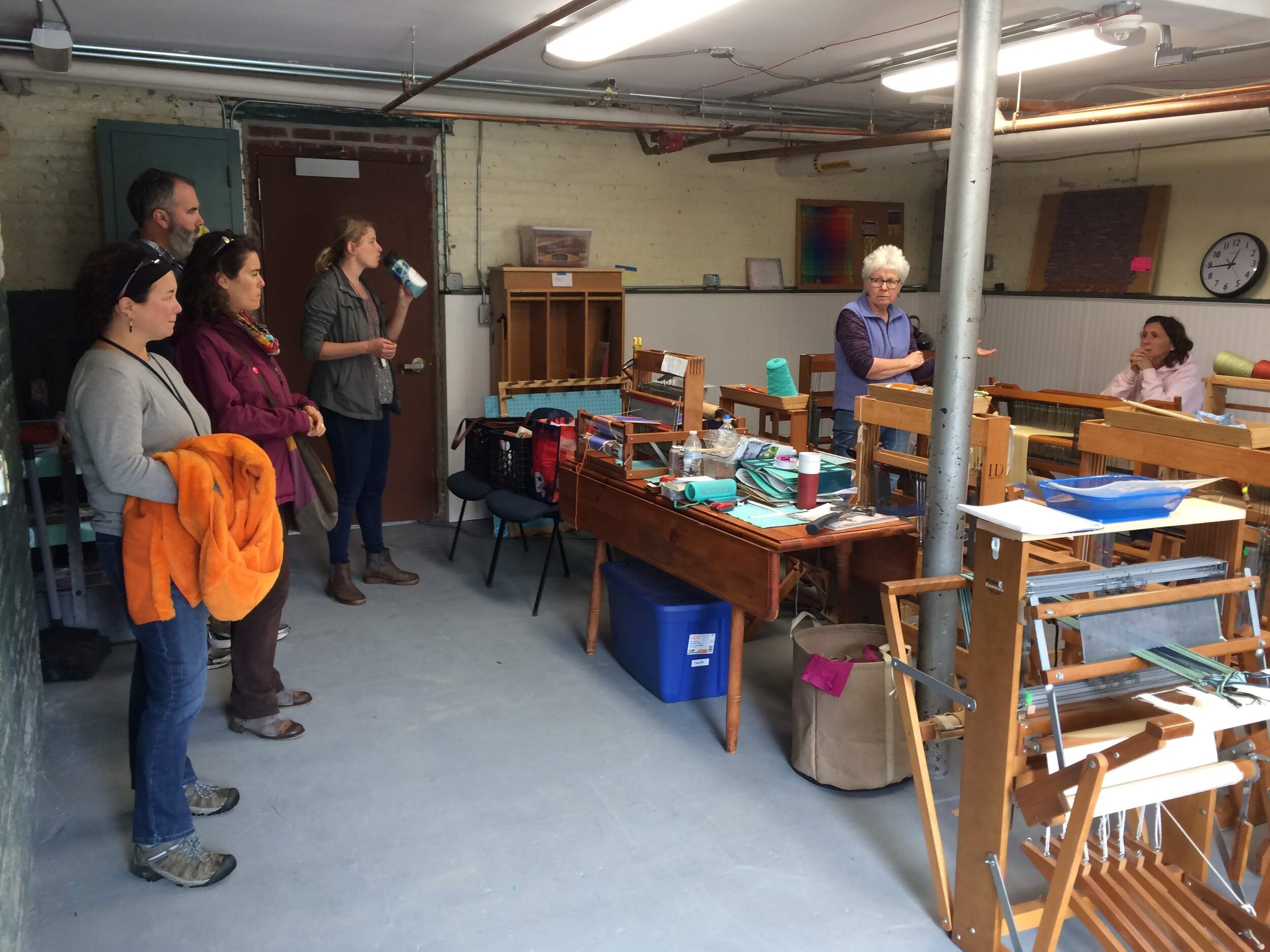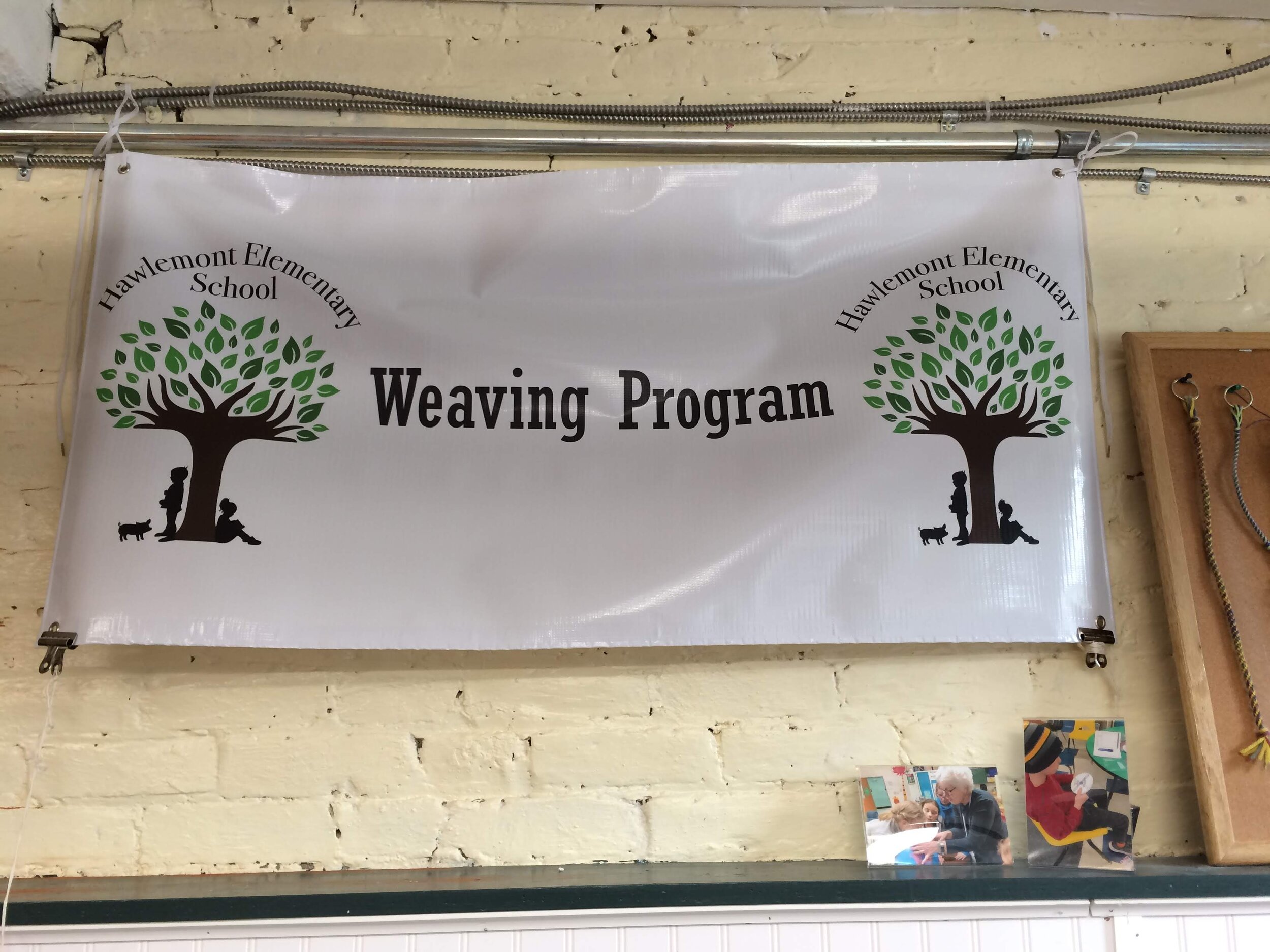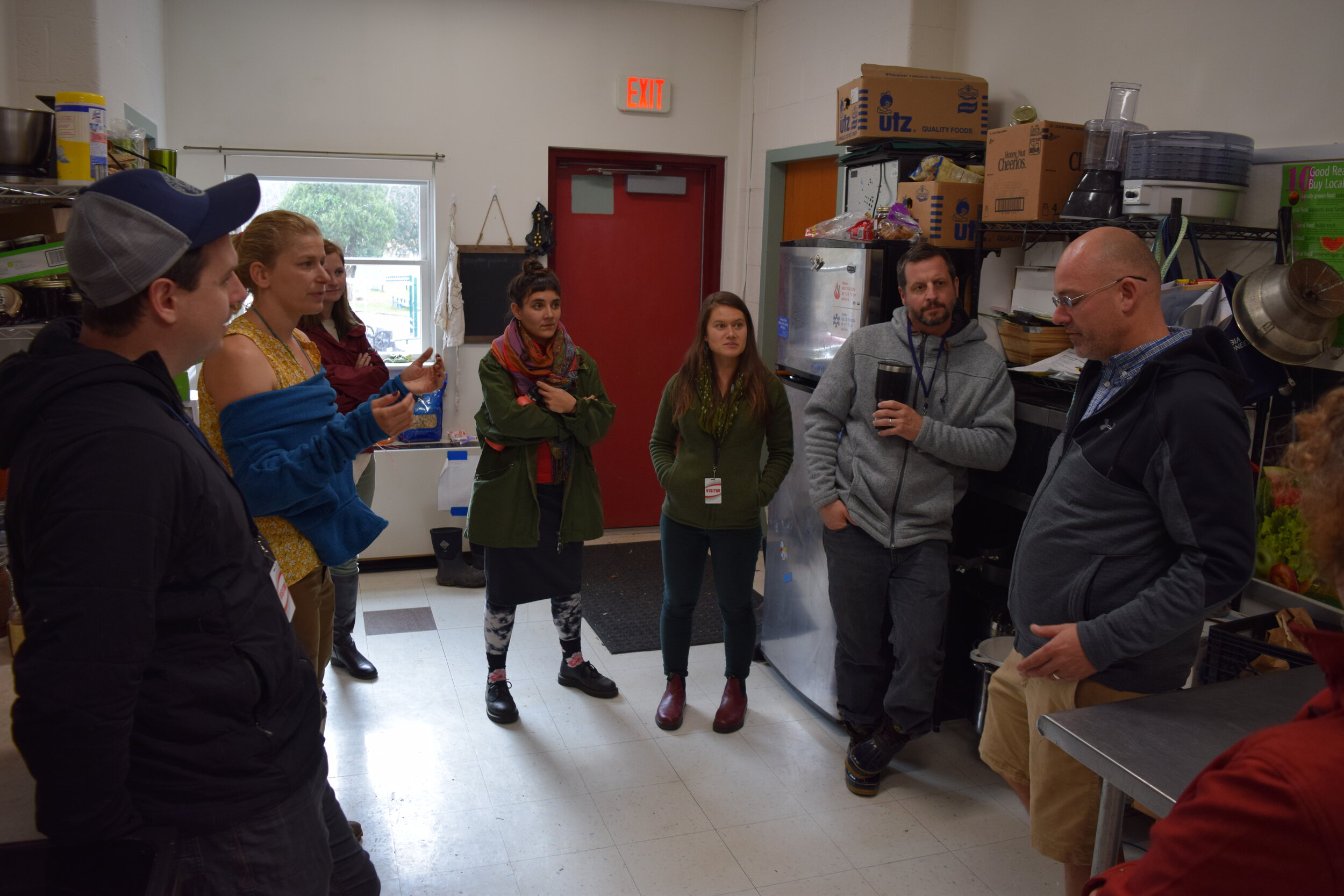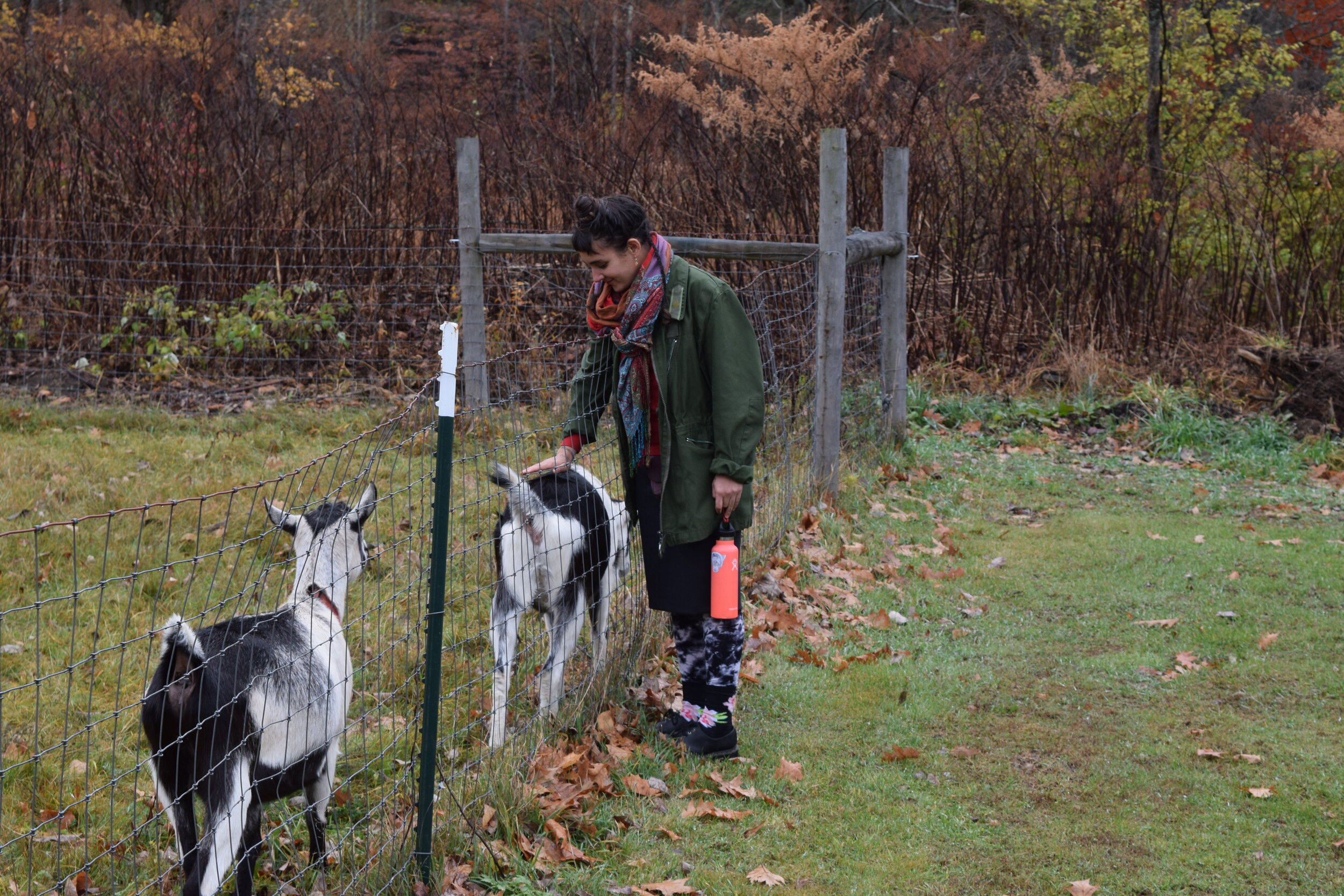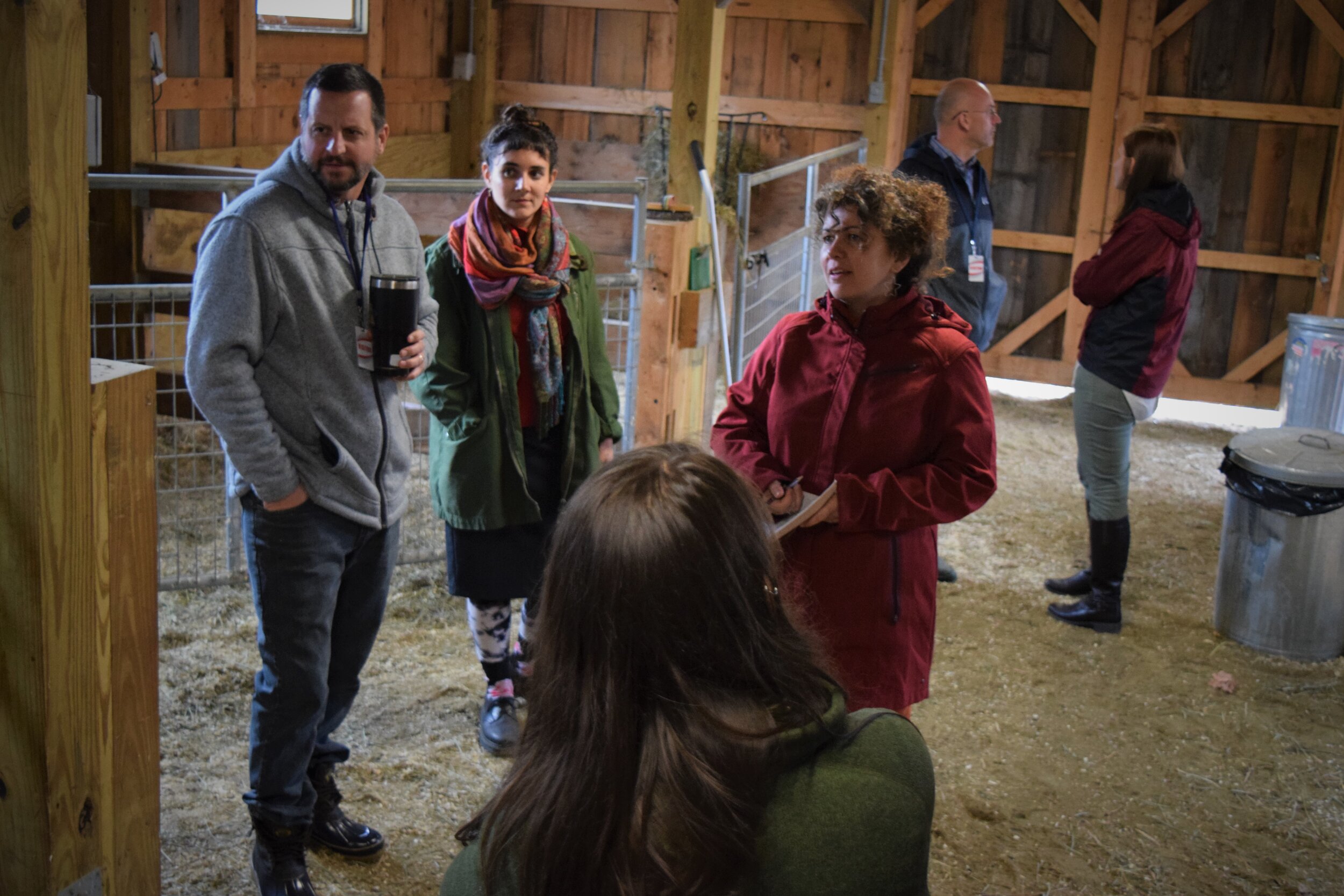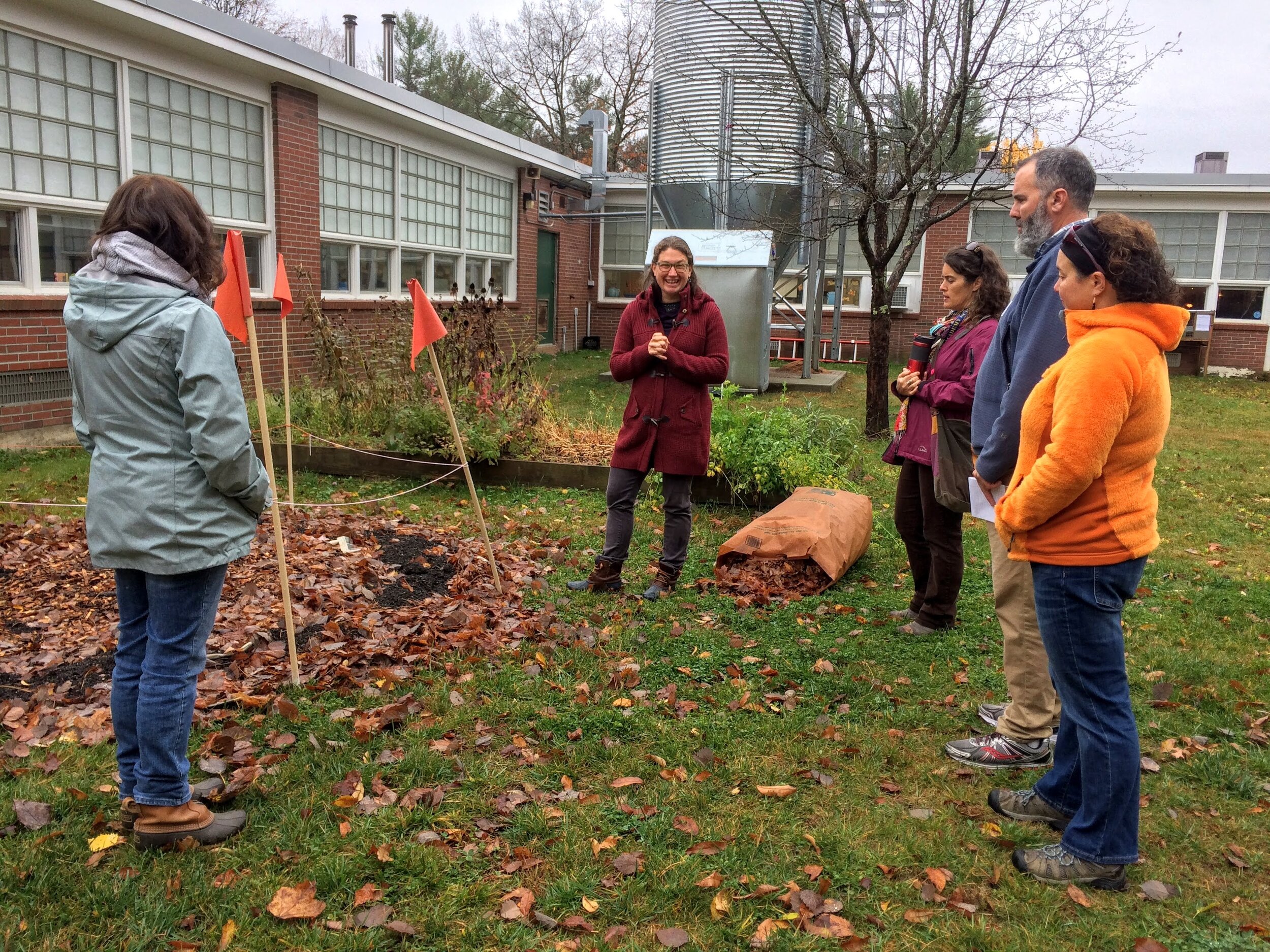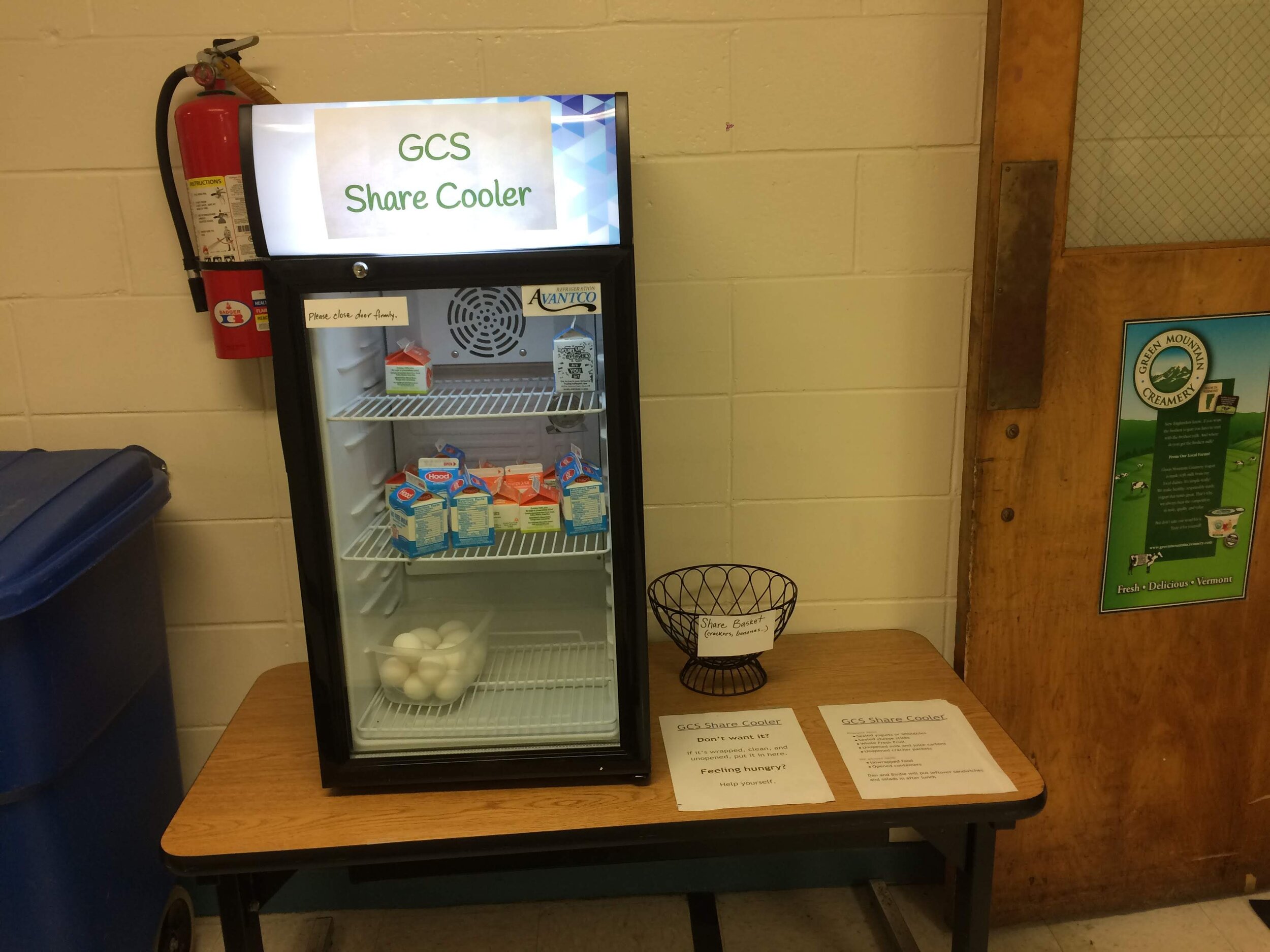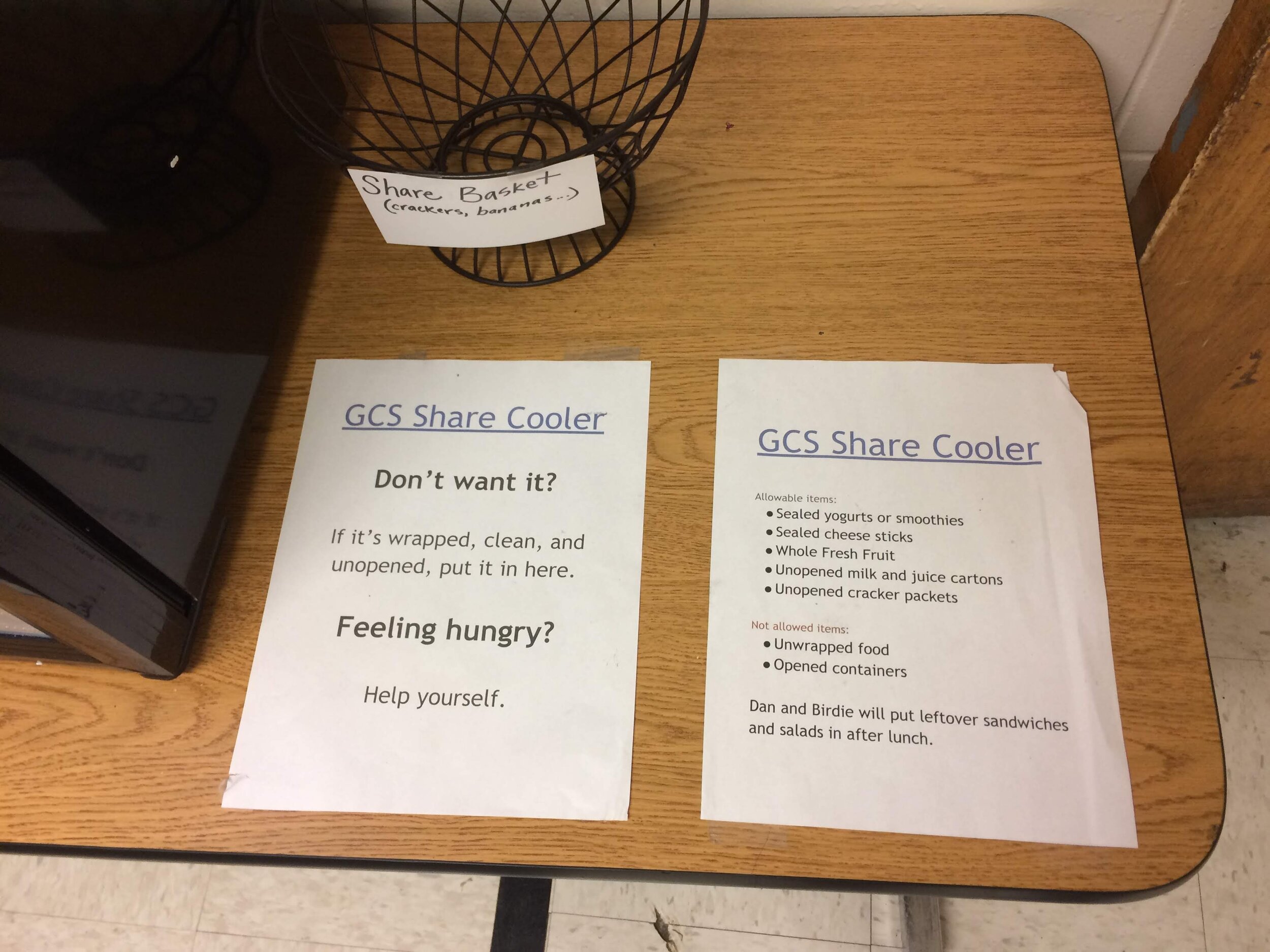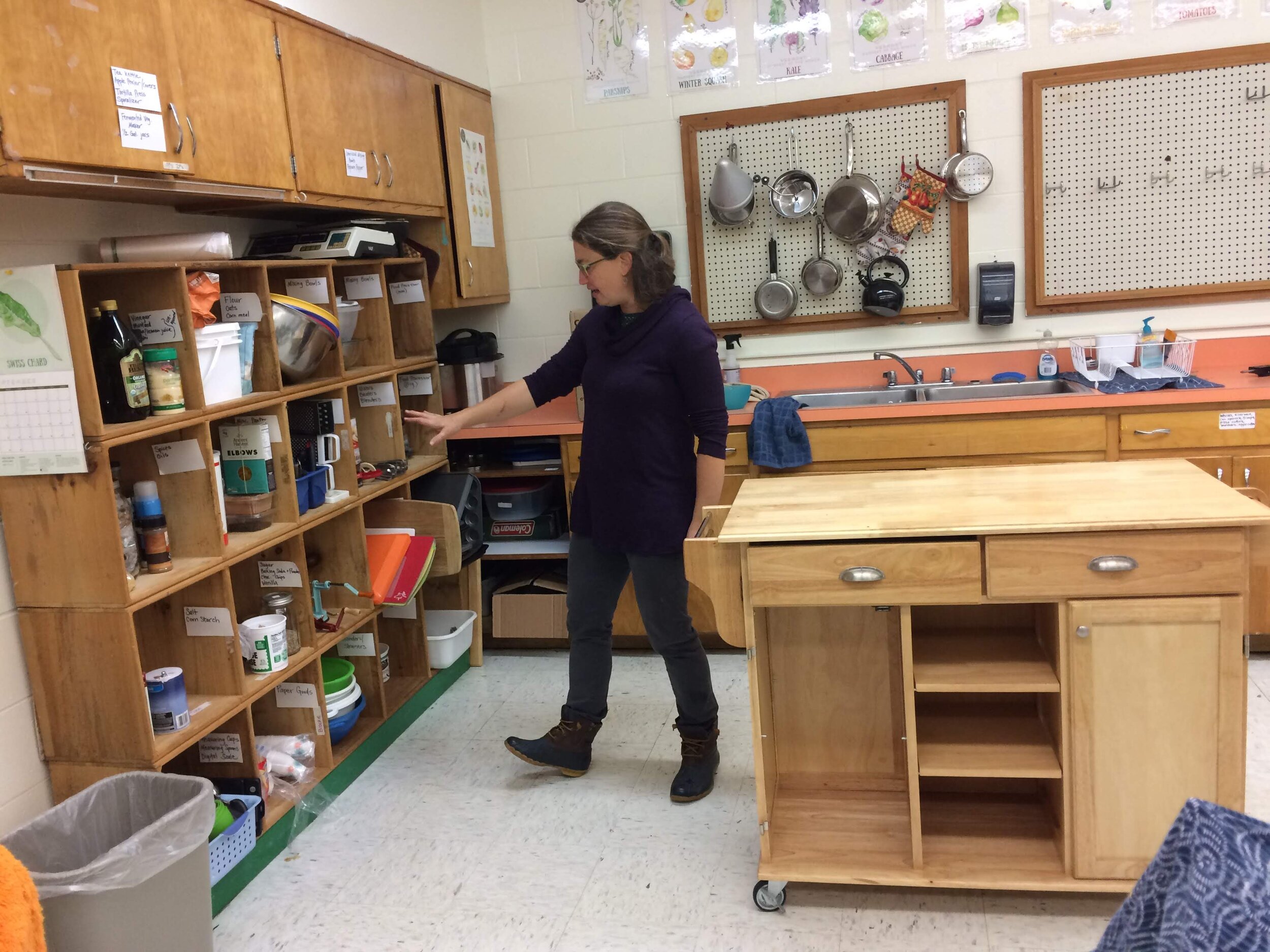Gathering on the shores of Lake Champlain for three glorious days at the end of June, dedicated members of Oak Grove School’s Farm to School (FTS) Team immersed themselves in learning and planning their next steps towards strengthening their FTS program. The Oak Grove team is participating in the Northeast Farm to School Insititute (NEFTSI) this year. The June retreat began a year-long professional learning opportunity to strengthen FTS programming at the school. Now in its 12th year, NEFTSI is a tremendous resource for schools looking to increase the capacity of farm, food, and nutrition education to impact lasting change in classrooms, cafeterias, and the community.
FTS teams comprised of educators, food service professionals, administrators, and community members from 10 different schools and school districts in Vermont, Connecticut, Massachusetts, Maine, Rhode Island, New York, and Nebraska were in attendance at NEFTSI this year. With such a diverse group of participants, there were many opportunities to cross-pollinate ideas among rural and urban schools serving pre-K through 12th-grade students.
The NEFTSI agenda featured a mix of inspiring speakers, hands-on learning opportunities, and focused work time with the support of a coach to set achievable goals for the upcoming year. Participants were nourished by delicious meals made from recipes in the New School Cuisine Cookbook and featuring local, seasonal produce throughout the institute. Workshop topics ranged from “Bringing the Food System Alive in the Garden and Compost” to “Farm to School in the Classroom Through an Equity Lens,” giving participants multiple opportunities to engage in hands-on learning with topics of their choosing.
Oak Grove School has had an FTS program for over 15 years. Their garden program has taken a big step forward in recent years by adding a part-time garden coordinator, Tara Gordon. Recent changes to the garden include moving the primary garden beds to a more central location and adding several pollinator gardens and other plantings to their Living Schoolyard.
At NEFTSI, the team began by crafting a values statement to guide their work and explicitly communicate their values to the greater community. After reviewing some sample values statements by other FTS teams and doing some group brainstorming, the team quickly agreed on the following statement:
“ Farm to School at Oak Grove School values growth, nourishment, and empowerment through hands-on experiences with food in the garden, classroom, cafeteria, and community.”
Next, the team moved on to goal-setting. Oak Grove’s FTS program had a few setbacks during the COVID-19 pandemic, one of which was that the school-wide harvest dinner was canceled for two years, and it is unknown whether it will return in 2022. This annual harvest celebration allowed the entire school community to engage in gardening and cooking together. The loss of that school-wide activity has impacted full school participation in the FTS program. On the other hand, the pandemic has motivated some classrooms to spend even more time outdoors in the school garden than they did before the pandemic. Currently, about ½ of the faculty at Oak Grove actively engage with their students in FTS activities regularly throughout the school year. One of the goals set by the team at the Institute is to increase classroom participation in FTS back up to 100%.
With no guarantee that the harvest dinner would come back this year, the team had to think creatively about other ways to encourage classroom participation in FTS activities. The team plans to kick off this goal by hosting a garden party for school staff before the start of the school year to encourage staff who don’t usually visit the garden to step outside and eat a delicious lunch together. A simple garden map will be created before the garden party to help teachers know what is growing in the garden and where to find it. Tara hopes to partner with a classroom to engage students in making a more detailed garden map as a special project this year.
Plans are also in the works to develop a menu of creative and easy-to-use FTS lessons and activities for teachers who are not inclined to garden or cook with students and to help teachers connect these lessons to things already happening in their curriculum. Tara is available to work with all classrooms, and Principal Mary Kauffman will use the existing system of grade level accountability partners to encourage teachers to check in with a peer once a month about this school-wide goal of engaging with the school’s FTS program at least once during the school year.
That’s just one of the five goals set by the team to work on this year. Here’s a snapshot of the other four goals:
Increase student participation and reduce food waste in the fresh fruit and vegetable snack program
Bring back monthly Harvest of the Month taste tests
Increase family engagement in FTS throughout the whole year (including summer)
Increase communication about FTS to families & staff
Freshly inspired, this team is ready to continue transforming their school culture to offer more and more opportunities for hands-on learning with farm, food, and nutrition education, and we can’t wait to see the fruits of their hard work emerge throughout the year!



